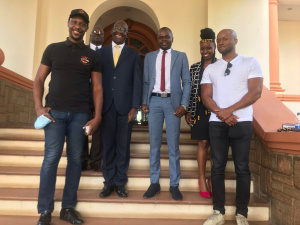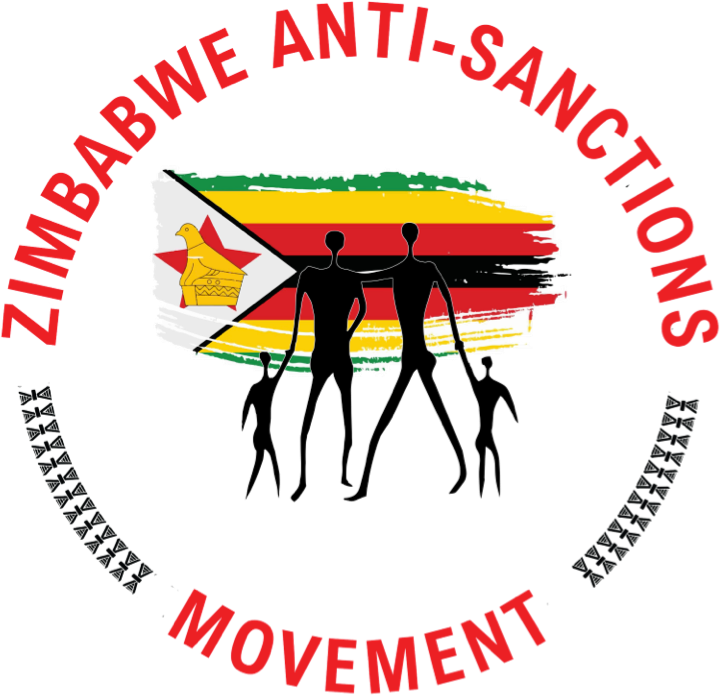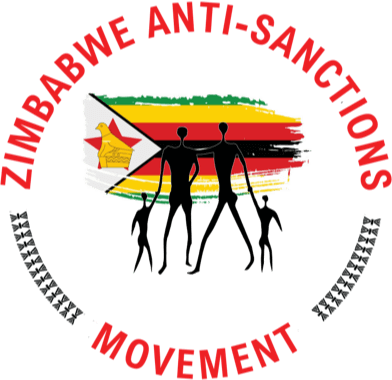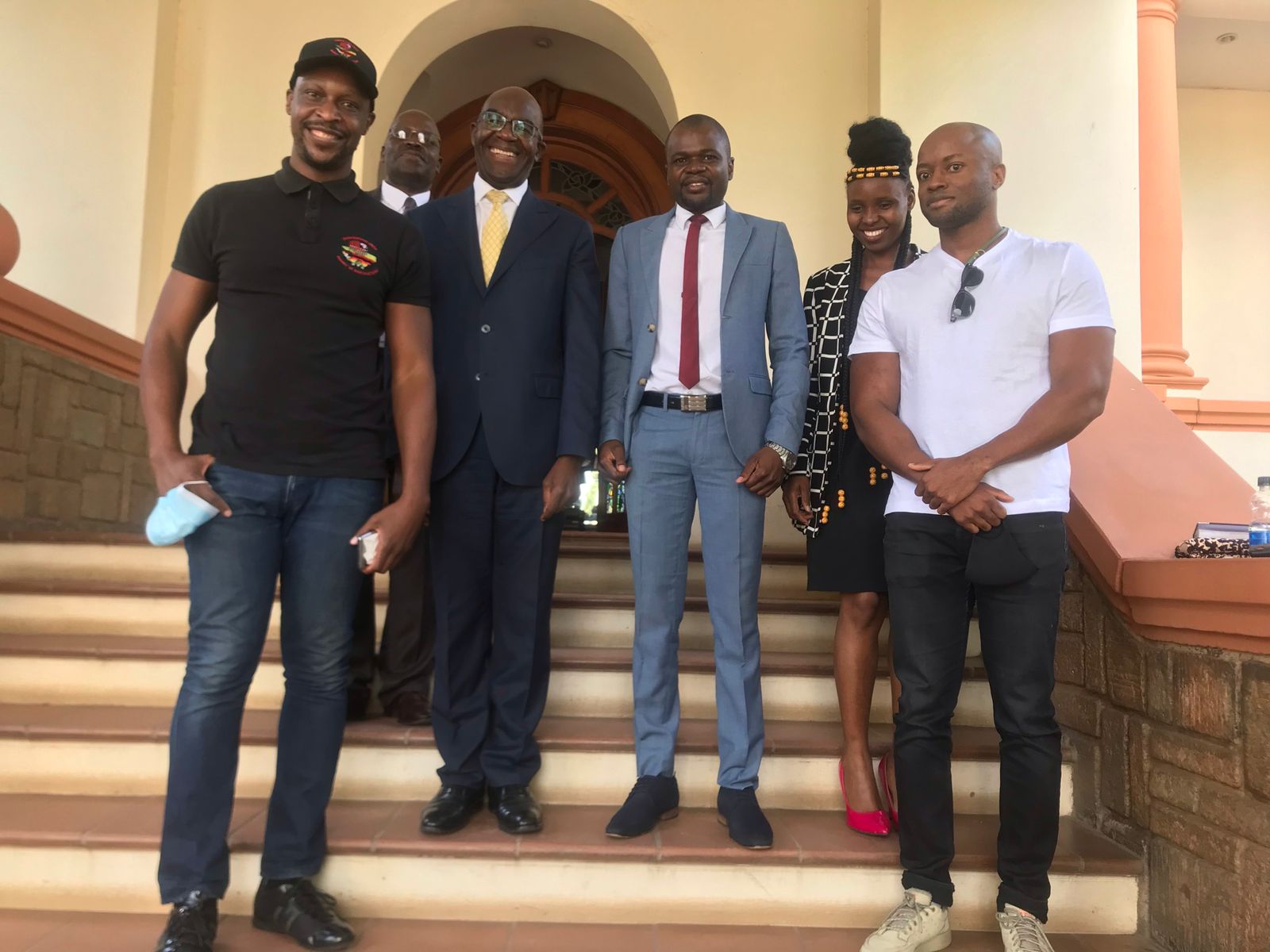 Many people have never understood why I am frustrated at the way the Zimbabwean government has handled the removal of executive order sanctions on Zimbabwe.
Many people have never understood why I am frustrated at the way the Zimbabwean government has handled the removal of executive order sanctions on Zimbabwe.
In 2018, I took it upon myself to fight sanctions as a civil society organization called Zimbabweans Unite Against US War Sanctions. As a result, in January 2019, the government invited me to Harare and offered me a job, hoping to nationalize my anti-sanctions campaign.
During these engagements, I shared some of my anti-sanctions strategy, which included mobilizing the region and continent to march against sanctions. I also asked for permission to blockade the U.S. embassy, but instead, the security system chose the safer option of having the Broadbased Alliance Against Sanctions camp outside the embassy.
I declined the job offer, unwilling to let the government co-opt my campaign. Later that year, the government and SADC implemented my strategy of mobilizing SADC marches against sanctions every October 25. In fact, the first logo used to promote this SADC Anti-Sanctions Day was mine, until I complained to Nick Mangwana and they developed their own.
Although I supported these marches, I disagreed with holding them prematurely before educating SADC citizens on how sanctions affected Zimbabwean and SADC civilians and economies.
In 2020, the government approached me again, this time asking me to unite with some ZANU PF members to form a unified anti-sanctions organization. Through this, I was introduced to Simba Chitando, who was punted as the government’s legal fixer who would assist with the litigation strategies I had been promoting in my anti-sanctions campaigns. There were other members involved, whom I will not name right now.
I initially refused to leave my organization to form a new one because I did not trust the government’s agenda and did not want to be entangled in ZANU PF politics. For six months, the people sent to convince me emphasized that fighting sanctions alone without joining others would make me look selfish and that I would never receive support or resources from the government.
Reluctantly, and not wanting to seem selfish, I left my organization, and we formed the Zimbabwe Anti-Sanctions Movement (ZASM), where I was made Chairman because it was my skills they needed to drive the initiative.
What I didn’t know was that while we were being asked to form this unified organization to fight sanctions, I was also being set up for a CCC-style infiltration to derail my anti-sanctions campaign and destroy my reputation.
From the moment we formed the organization, we met the Zimbabwean Ambassador in South Africa, Hamadziripi and an intelligence officer was assigned to our team. We were told how the Zimbabwean government was struggling to convince the South African government to denounce sanctions on Zimbabwe on international platforms, as they do for the Palestinian cause and Cuban sanctions.
They also told us that they were struggling to persuade South Africa to view Zimbabweans as refugees displaced by the illegal sanctions of the opposition of Nelson Chamisa, which the South African government recognized and legitimized.
We were then asked if we could shift South Africa’s stance on these issues and ensure that they denounce and distance themselves from the opposition. We assured the government representatives that we would achieve these objectives with ease—and we did.
We were asked to begin work and promised resources to undertake it, but no resources ever came, so we worked out of our pockets. We were inundated by intelligence handlers who kept promising us resources that never came.
Although the central agenda for some in government was to destroy my credibility and anti-sanctions campaign, the success of my strategy made me indispensable and difficult to sabotage, as my campaign brought unexpected benefits to the government.
Central to our strategy was multilateralizing the fight against sanctions to get the UN to come to Zimbabwe and confirm to the world, especially our neighbors, that Zimbabwe was indeed under sanctions. This strategy worked as it regained the Zimbabwean government’s standing and reputation.
I also convinced the Minister of Justice, Ziyambi Ziyambi, of the benefits of involving the UN, when I illustrated to him how the West might consider removing sanctions on Zimbabwe but could evolve them into blacklisting our financial system through the Financial Action Task Force (FATF) after several reports implicated our government, army, and business people in money laundering.
I went onto explain to the Minister that if the UN declared sanctions on Zimbabwe illegal and illustrated how they shut Zimbabwe out of legitimate financial systems, the money laundering sanctions by FATF would immediately be nullified. Thusly, four months after the UN preliminary report on the negative impact of sanctions on Zimbabwe (in February 2022), FATF removed Zimbabwe from the FATF greylist.
Going back slightly to events that led to Congress and the UN coming to Zimbabwe. By mid-2021, the anti-sanctions campaign was gaining traction through my interviews, documentaries, and podcasts in the U.S., South Africa, Russia, and other countries, which raised awareness of Zimbabwean sanctions to the world.
By Independence Day in April 2021, we were scheduled to conduct an online lecture on the anti-sanctions fight with the ZANU PF Herbert Chitepo School of Ideology. While preparing for this lecture, I was contacted by a Congressional advisor and Department of State, Pentagon, and White House liaison, through a Ghanaian media owner who had sent our School of Ideology anti-sanctions lecture invite to her.
The first question both individuals asked me was: if sanctions were removed from civilians and left on politicians, would we be satisfied and willing to stop our fight against the U.S. government? I said no, arguing that we needed all sanctions removed, including those on politicians who were being punished without trial. I also demanded that the U.S. government conduct a human rights impact assessment of their sanctions on civilians, to remedy the negative effects of those sanctions on civilians and service-delivering institutions. NOTE: This entire discussion is available in audio recording.
Within thirty days of this discussion (on 25 May 2024), Congress sent its Subcommittee on Healthcare, Human Rights, and Organizations to contact POLAD and inform them that they were going to conduct an impact assessment on civilian lives in Zimbabwe and the rest of Africa. I only learned of this development after POLAD approached me and told me that they needed my notes on the negative impact of sanctions to write a report to the Congress subcommittee as requested.
Within sixty days, the subcommittee was done with their assessment, and they wrote a report to the U.S. President, advising him that sanctions on Zimbabwe were harming civilians, depriving them of healthcare and human rights, and thus should be lifted; otherwise, that government risked being taken to the ICJ.
A month later, in September 2021, the UN Human Rights Council also conducted an impact assessment of western sanctions on Zimbabwe, which they denounced as illegal violations of human rights. Despite the U.S. government’s opposition to the UNHRC report, that report mirrored their own Congress’s findings and subsequent report.
After the UN came to Zimbabwe, I was contacted by a representative of a major decision-maker in the Zimbabwean government, and they asked me what we wanted to do now that the UN had denounced sanctions as I had hoped. I told them that we would like to use the reports to launch a legal case against South African banks (banks of our biggest trading partner) that were illegally implementing sanctions and we were going to cite Joe Biden, the Secretary of State, OFAC and the Speaker of Congress i.e. the actors who were coercing these banks to enforce illegal sanctions under the threat of punishment.
The representative told us to begin our preparations, and he would organize the necessary financial resources. In March of 2022, we launched the case as stated above.
Now, with the UN report and the case, this confirmed beyond doubt to South Africa, SADC, and the AU that Zimbabwe was indeed under illegal western sanctions and we as Zimbabweans were now taking the lead on fighting those sanctions.
This allowed us to pressure the ANC government—facing its own internal pressure to deport Zimbabweans—to recognize that the Zimbabwean refugee crisis being displaced into South Africa was a result of the illegal western sanctions denounced by the UN and not mismanagement by the Zimbabwean government.
We went on to argue that if the ANC wanted to resolve the refugee crisis, they had to use their voice to lead the fight against sanctions and denounce the Zimbabwean opposition that called for these sanctions that undermine ANC’s service delivery.
Eventually, I was called to meetings with senior South African government officials who committed to championing the fight against sanctions to facilitate the return of Zimbabweans, to ease the strain on their ability to deliver services for their people. Soon after that, we saw Cyril Ramaphosa and Naledi Pandor relentlessly denouncing western sanctions in every multilateral and bilateral platform.
In tandem, Simba Chitando was advocating for ZEP permit holders in court, and he successfully got Hellen Suzman to launch a parallel case, which led to the renewal of ZEP permits to this day.
Additionally, we saw the ANC Secretary-General denounce the opposition as a puppet of the West. During our 2023 elections, when the West sought South Africa’s support in condemning Zimbabwean elections on the back of the SADC Election Observer Mission report by Nevers Mumba, the ANC refused to denounce our elections, and instead declared that for free and fair elections to happen in Zimbabwe, illegal sanctions needed to be removed. This dampened the whole regime change agenda that the West was trying to advance on Zimbabwe.
As illustrated above, we exceeded our government’s expectations, delivering far beyond the mandate we were given. The South African government compromised its own election fortunes, while the lawyers (South African lawyers), led by Simba Chitando, worked without receiving a cent from the government—only the well-wisher and I contributed to paying them, and to this day, I am still liable for the debt still owed to these lawyers.
Part of why I fell out with Simba Chitando is that he and the legal team were never adequately compensated for their work, and they thought that I got paid by government and squandered the money, yet I wasn’t. Nevertheless, at least they received some form of compensation for their worker.
Foolishly, determined to see sanctions removed, I put every cent into this fight instead of keeping some of the money for myself. Do I regret it? No, because I did an amazing but unappreciated service for my nation. It is this lack of reimbursement and me being left responsible for the outstanding debt owed for this fight, why I say it was my fight because I stand alone responsible for these national debts.
Now that we’ve completed our fight and removed sanctions, and the ANC has lost power for accommodating Zimbabwean refugees, we hear our ungrateful government claiming that sanctions were never removed—despite ZASM, the lawyers, and the South African government delivering on the mandate we were given.
Instead of our government engaging us to remove the Magnitsky Sanctions and to help market the fact that Zimbabwe is now open for business because sanctions are gone, they spit in our faces saying sanctions have not been removed. Such a marketing campaign would attract investment and loans to grow the economy and enable Zimbabweans to return home, thereby helping the ANC regain its footing.
Our government spits in our faces (not only mine but the South African government, the lawyers and everyone who fought Zim sanctions) by making light of the work done over the past five years to remove these sanctions. I am still burdened by the huge debts and costs resulting from this fight and never received the promised resources for the fight. Some say those resources were stolen by individuals who pretended to be bringing them to us.
More critically, the contacts we have in the U.S. system have offered assistance to help Zimbabwe inform US companies that the nation is no longer under sanctions, to regain investor trust, but the government doesn’t seek their assistance or our guidance. And to think that this government went out of its way to convince me to leave ZUAUWS to form ZASM, to advance their mandate and now they kick me in the teeth. This angers me. Now I am hearing rumors from a ZANU PF insider that a hit has been put out on me because I am suspected to be a part of some ZANU PF faction. I am so disappointed.
Written by Rutendo Matinyarare, Chairman of ZASM.





